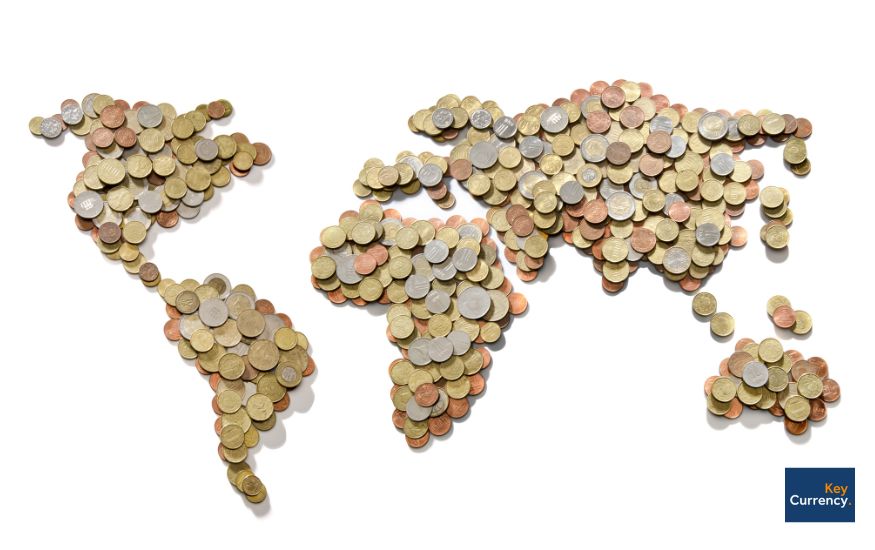
Last Updated on August 21st, 2024
Please Sir, can I pay some more fees? Said no one, ever!
Well, one thing we can say for sure is that the financial world has progressed tremendously since the days of Oliver Twist!
However, one aspect of the process that has remained consistent during the evolution of international money transfers is that various costs have always been involved!
In this article, I’ll outline all the costs you may encounter when making a money transfer abroad.
Most importantly, we will share our top tips on avoiding hidden fees and getting the best value for your transfer!
Transfer Money Today with No Fees
What costs can I expect when making an international transfer with my bank?
Your bank may appear the obvious choice, especially for those new to international money transfers.
However, the obvious choice is not always the best one!
You may have had first-hand experience with how easy domestic transfers are online. Seems simple, right?
But beware, when transferring money abroad with your bank, it’s not quite as straightforward as you think!
Banks can hit you with some hefty fees, making your transfer considerably more expensive than anticipated.
Every bank is different, but generally, you can expect them to take as much as 3-4% of your total transfer as a fee when you transfer money internationally.
When sending money from a UK bank to another country, there are two significant costs you need to consider.
1) Transfer Fees
Any high street bank will charge for processing an international money transfer for regular customers.
It’s important to know that these fees can vary between UK banks.
They can also be different depending on how you make the transfer, for example, online or in person.
See below for the charges the Top 10 UK banks advertise for sending money abroad.
| Bank | International Transfer Fees |
| Barclays | £15-£40 |
| HSBC | Up to £35 |
| Lloyds Bank | Up to £35 |
| Natwest | £15-£30 |
| Santander | £10-£25 |
| RBS | £10-£30 |
| Halifax | Up to £30 |
| Nationwide Building Society | £20-£25 |
| Co-op Bank | Up to £25 |
| Metro Bank | Up to £25 |
Sounds reasonable? Alert! The big costs tend to be hidden in the exchange rate!
If you use your bank to transfer money abroad regularly, you must pay the above fee for each transaction.
Consulting a currency broker can eliminate these fees once and for all!
As easy and efficient as it may seem, banks are rarely the best option for transferring your money abroad.
2) Exchange Rate Fees
If you are not used to making international transfers, you are forgiven for not understanding exchange rates.
Or knowing the difference between an interbank rate and a real-time rate.
Let’s face it – not many people need to know this regularly!
I’ll break it down:
- When you switch your pounds to another currency, your bank adds a margin.
- This margin is the difference between their rate and the interbank rate.
- The interbank rate is the standard rate at which banks exchange currencies with other banks only.
Banks raise the exchange rate compared to the interbank rate to make extra money from foreign exchange currency transfers (which makes perfect business sense – to them!)
And here’s the kicker: they are not transparent about this!
For example, if you look at Santander’s UK currency conversion page – they quote a rate of 1.16 to transfer pounds to euros.
Only the most eagle-eyed amongst us will spot the disclaimer in tiny letters stating:
These are market indicators that carry a non-contractual rate. Contact your local desk to discuss rates.
The above affects you because the total amount your recipient receives can be less than you had anticipated, which, let’s face it, isn’t making anyone happy!
The moral of this story? Always speak to your bank in person for an up-to-the-minute rate to avoid any nasty surprises when making an international money transfer with your bank!
In simple terms, you are being charged for converting your currency in addition to the interbank rate, which can be either a fixed fee or a percentage of the total amount received by your recipient. The rate at the time of the transaction determines the cost for you as the sender and the amount received by the beneficiary.
For a real-time example, I asked my sister, who holds a current account with Barclays in the UK, to get a quote to send £100,000 to a La Caixa euro account in Spain. (in theory only, I am afraid!)
She called her local branch, who gave her a rate of 1.12.
That’s a margin of 4% compared to the current interbank, which equates to a charge of £4000, a significant amount of her hard-earned money!
But wait, there’s more!
What other costs must you consider when transferring money abroad with your bank?
Two other fees are worth knowing when making an international transfer with your bank.
These are:
Initiation Fee:
It is also known as a ‘setup fee’, and the cost will depend on which method you use to make your international money transfer.
Tracer Fee:
If you want to keep an eye on the progress of your transfer, then be prepared to pay a small sum to do so!
Again, each bank will vary here – so speak to your branch in person for full, total, clarification!
Great Exchange Rates with Key Currency
Why do banks charge so much for international money transfers?
Now we have established the costs you can expect from your bank, you may wonder WHY the bank fees are so high.
To find out, I decided to go straight to the source and posed the question to a friend who has been a branch manager at one of the top 5 high-street banks in the UK for over 20 years.
This was her answer outlining the two major reasons why your bank fees for transferring money abroad are high:
- In general, banks prioritise handling money within their own country. This means extra work for them when dealing with international transfers. Therefore, they charge higher fees to cover the extra hours involved.
- Timing and speed of money transfers abroad are also issues here, with banks taking between 2 and 5 working days to complete an international transfer. The bank might change the final amount your recipient gets based on how the currency market moves whilst your money is en route.
How much it will cost to transfer money abroad with online apps?
Online money apps are fast becoming a part of everyday life and can be incredibly useful in everyday situations.
Even my 12-year-old son has his own under-18 Revolut account, which can be used for pocket money!
While they may claim to have small fees for transferring money abroad, these apps only work out best when you are sending small amounts.
Watch out for sneaky fees when sending a large amount of money!
Let’s look at examples using four of the most popular online apps used in the UK and their fees for sending money abroad.
Popular Online Money Transfer App Fees
Paypal advertises ‘free’ transfers, but when you do a little digging – that only applies to domestic transfers.
When it comes to making an international transfer with Paypal they charge a hefty 5% currency conversion charge you would be looking at a charge of £750 for an international transfer of £15,000. Hardly what I call small change!
When I logged into my Revolut account and asked to send a transfer of £5000 from my GBP to my EUR account, the fee was £20. £1000 or under the transfer was free.
Wise publishes on their website an international transfer fee of 0.43%.
Now, that doesn’t sound a lot, but if you were looking to transfer £50,000 you would be looking at a fee of £215, which is a considerable dent in your transfer abroad.
Western Union, the original pioneer of international transfers also has an online platform. Fees vary for different currencies but can be as much as 4% on international transfers outside of the European Union.
If you were wanting to send £10,000 – the fee would be around £400.
| Online Money Transfer Platform | International Transfer Charges (£1000 or under) | International Transfer Charges (£50,000) |
| Paypal | £1.99 | Does not show due to limits in place. Assuming a 5% currency conversion charge this could be up to £2,500. |
| Wise | £4.30 | £215 |
| Revolut | Free | £200 |
| Western Union | £2.90 | Up to £2000 |
Further considerations with online money transfer apps
Most importantly, be aware of what I consider to be the most stressful issue when using online apps.
There are no real people to talk to!
Do you have a problem with your Revolut transfer for example? Forget about popping into your local branch for help – there isn’t one!
As for customer support – you are stuck with only a chatbot to answer your questions, and they are only able to give very generic answers.
This can be difficult to negotiate for even the most tech-savvy amongst us and very stressful in my own experience!
A problem you will not encounter when using a specialised transfer company – where your personal account manager is on the end of the phone to help you manage queries straight away!
Even if a conventional bank holds your money, you’re not stuck with them. You’ve got options. Consider a money transfer specialist such as Key Currency. We can handle international money transfers for you at a lower cost. Years of expertise and partnerships with financial institutions mean we can achieve competitive exchange rates, charge no fees, and pass savings to you. Our streamlined systems make international money transfers smooth and hassle-free at the best possible rates. Every customer gets an account manager – a real person who you can talk to directly. To put this into perspective, here’s a quote from Alex McKenna – a senior trader at Key Currency. Moving currency as a novice can be like learning to swim for the first time. An account manager can act like a set of armbands and keep you afloat. Our account managers help with payment details, discuss when to exchange your money, and keep you fully informed. It’s a more personal and reassuring way to handle things. We’re an FCA-regulated Authorised Payment Institution, meaning all money transfers go through safeguarded client accounts. Plus, we’re proud to have a 5-star customer rating on Trustpilot. If you want to explore your options, request a quote. With no strings attached! How can using a currency broker save you from paying fees on international money transfers?
Want to Read More?






 Author,
Author, 

